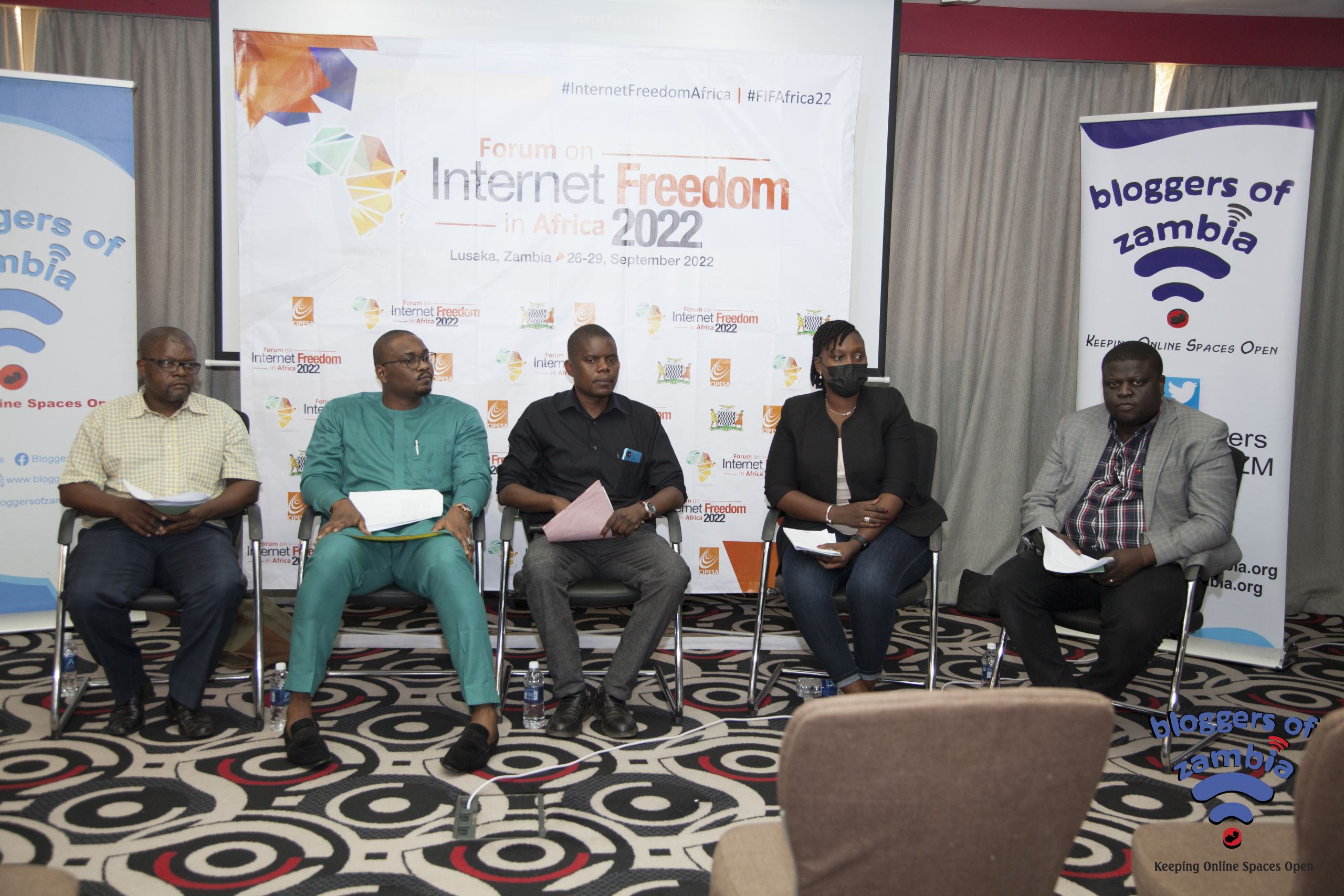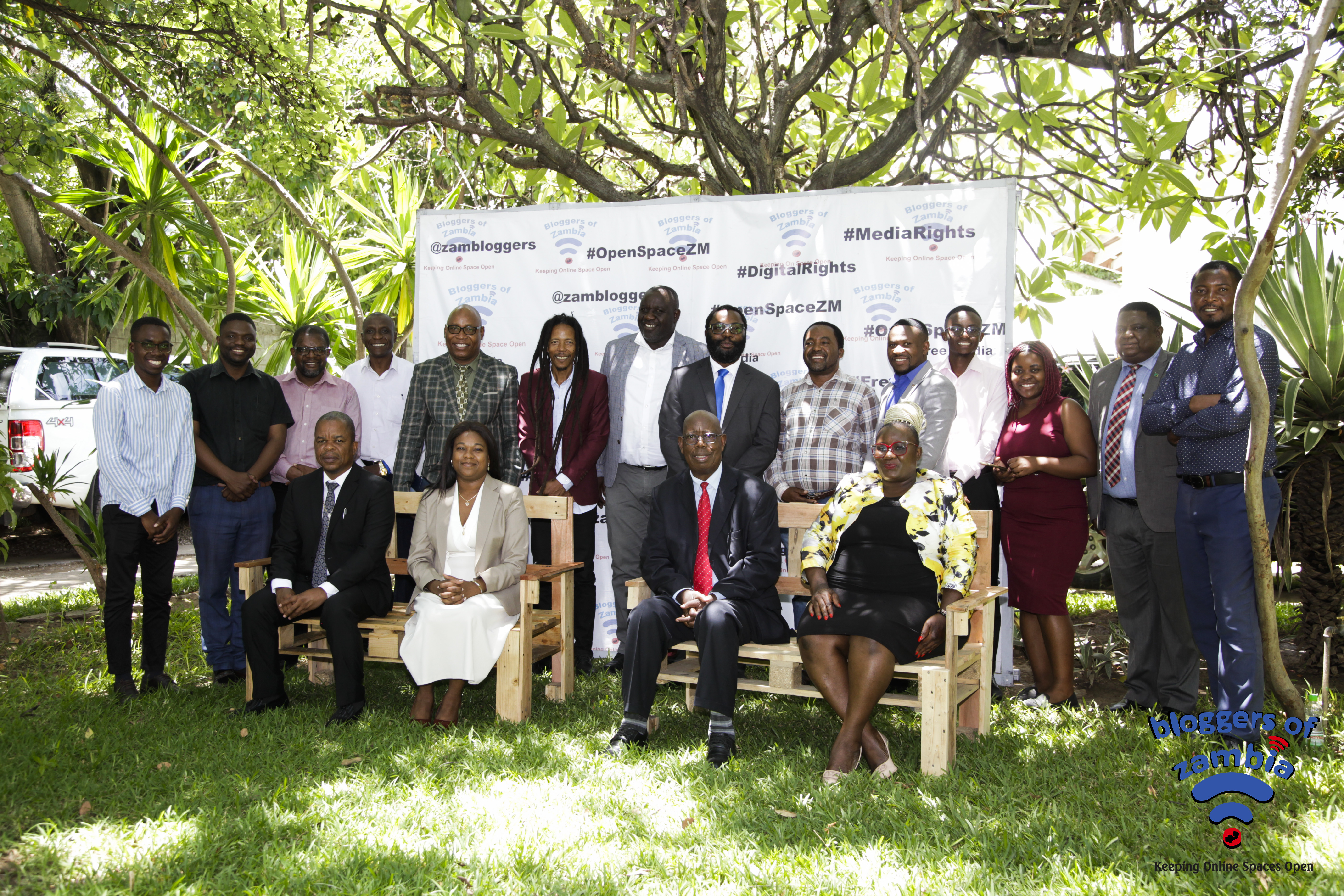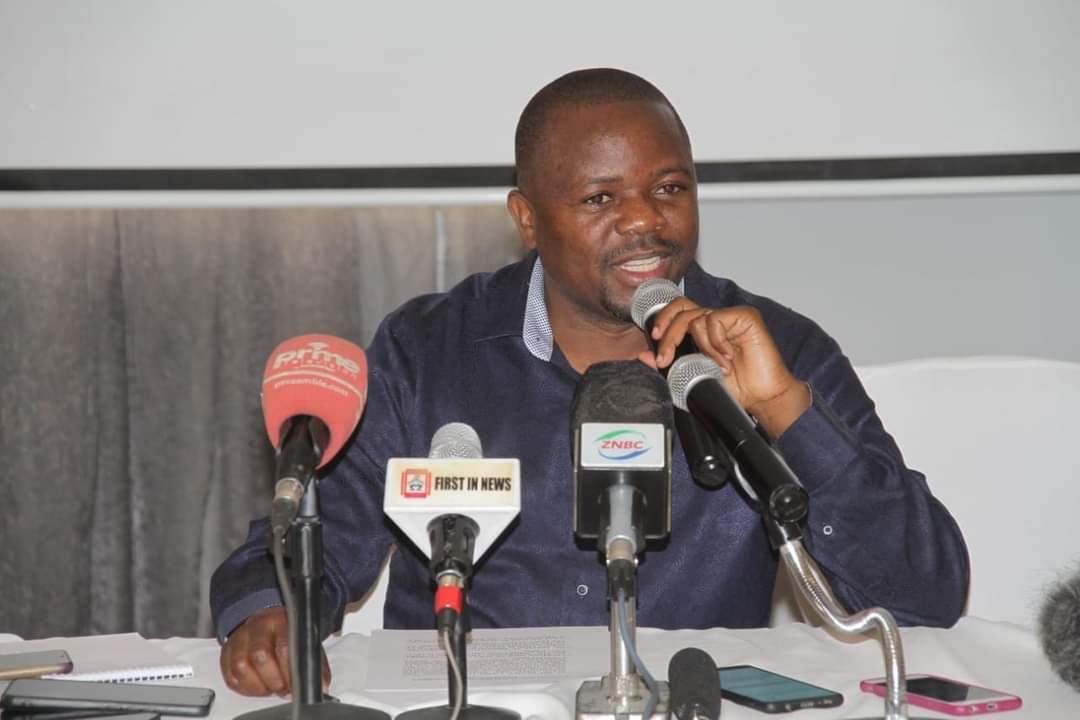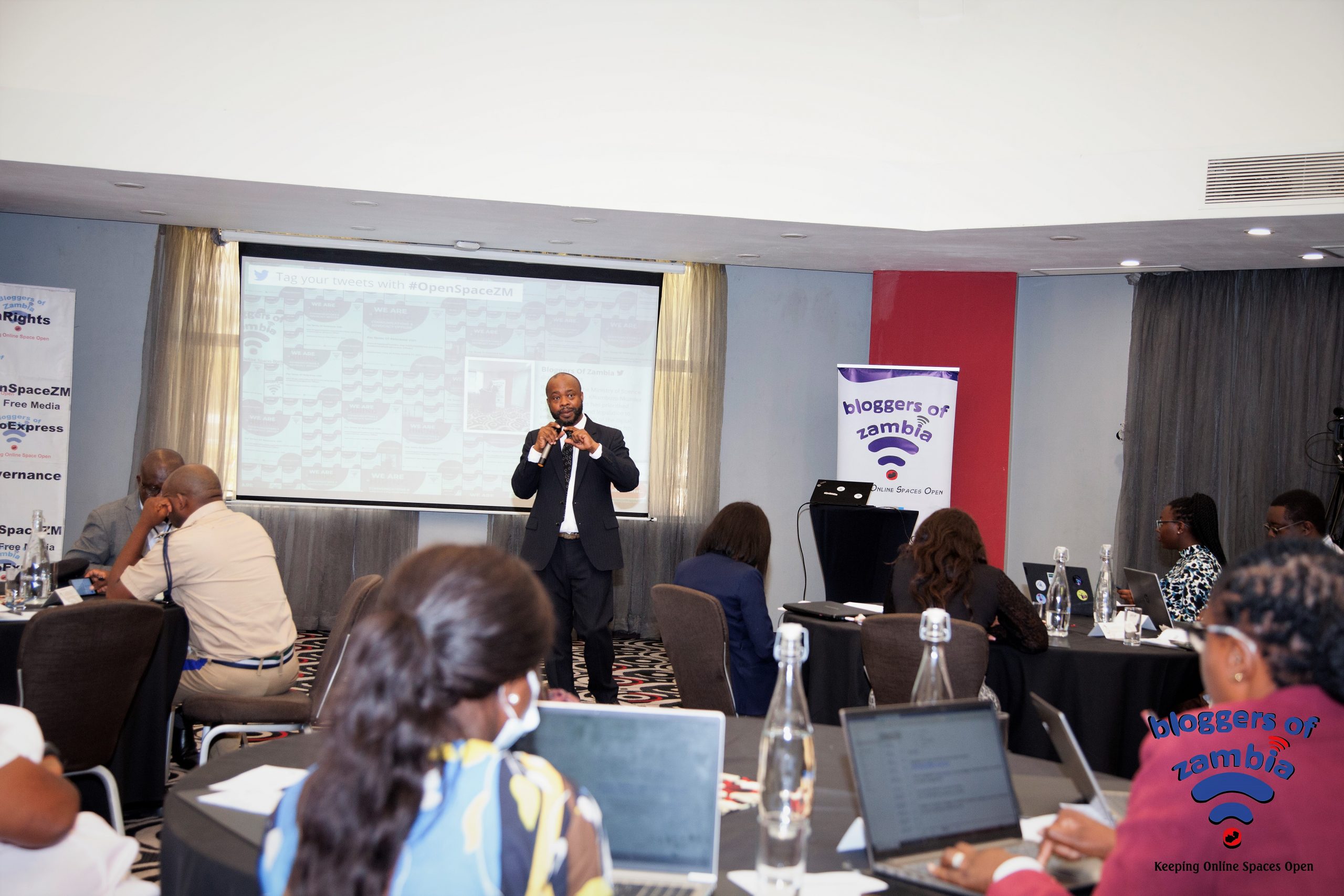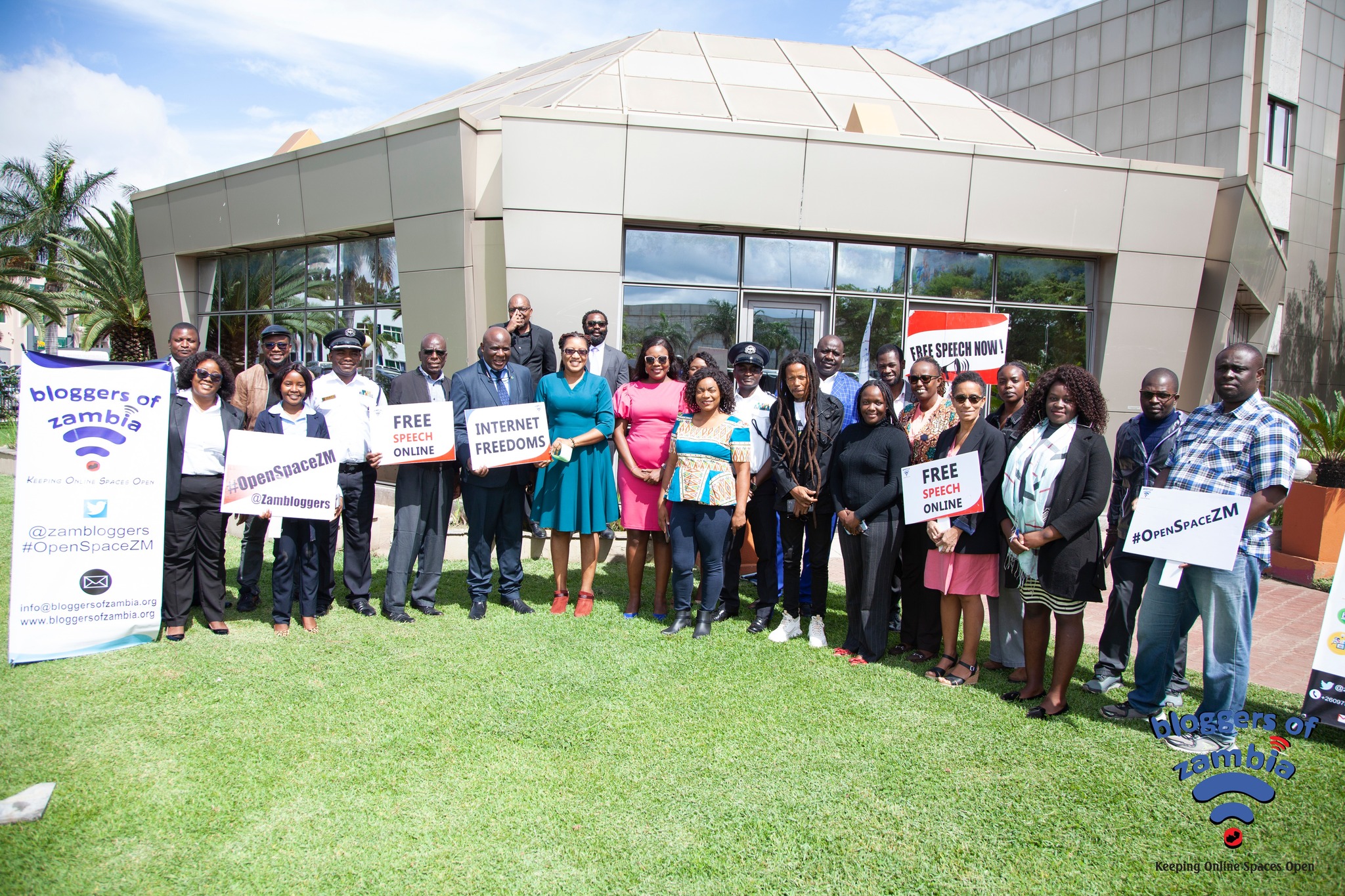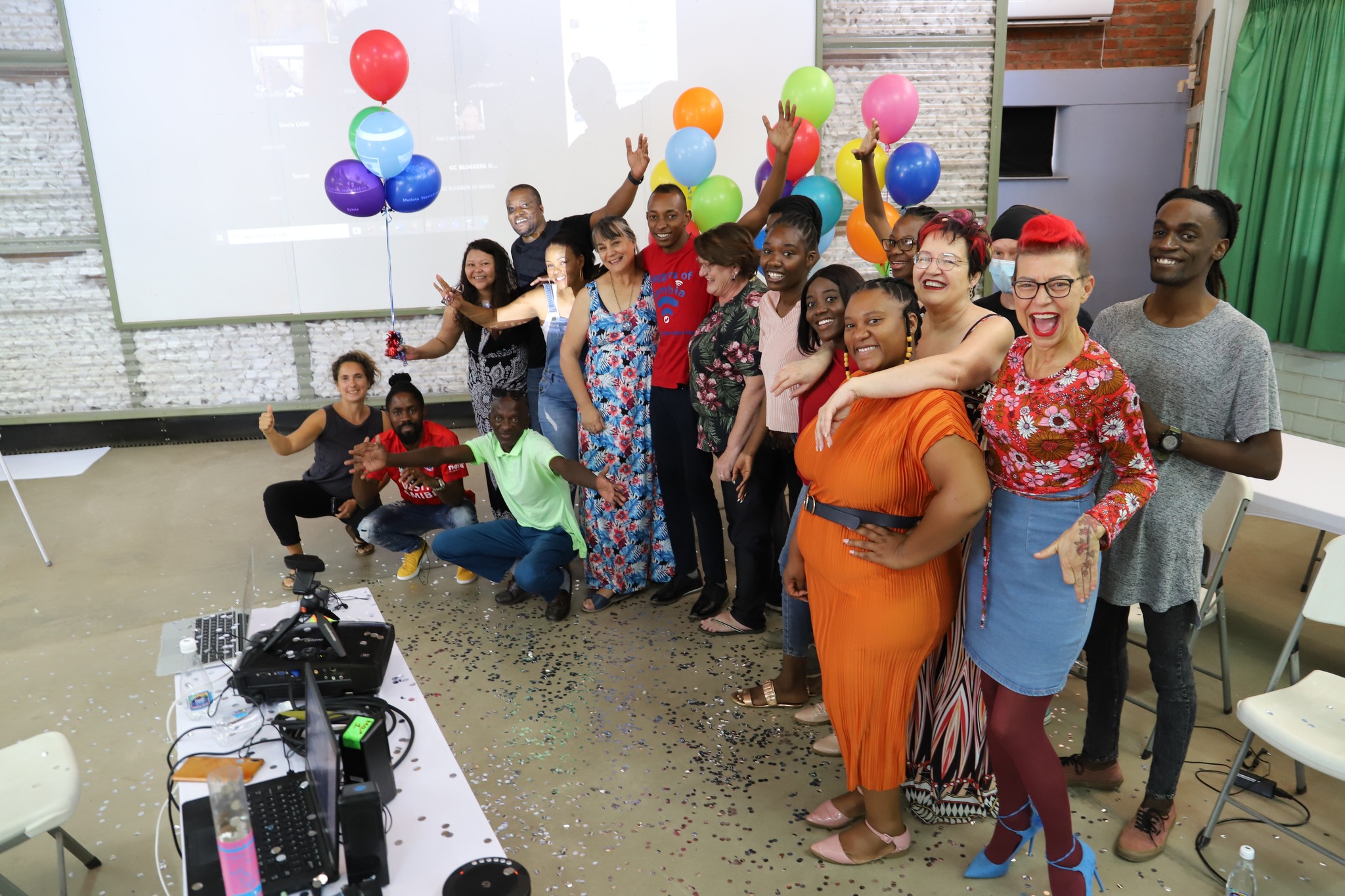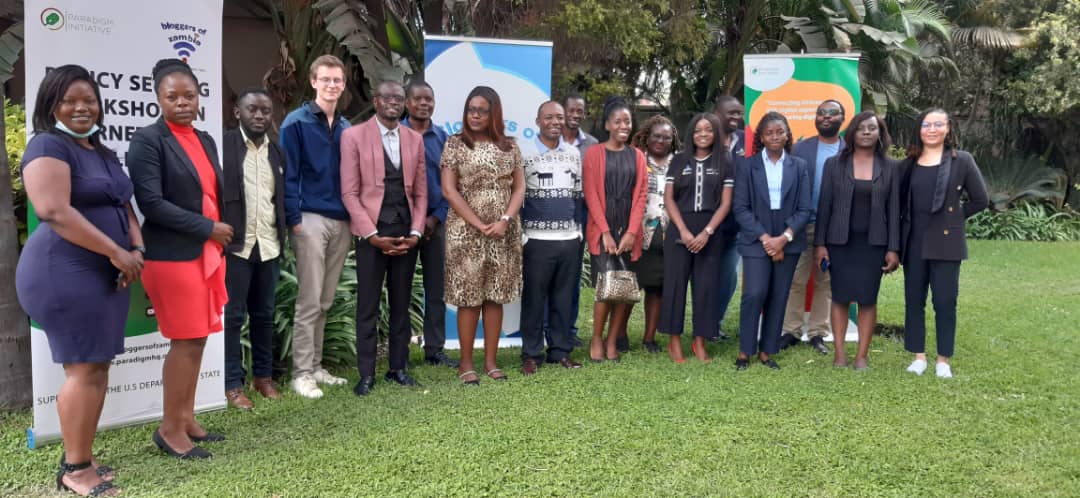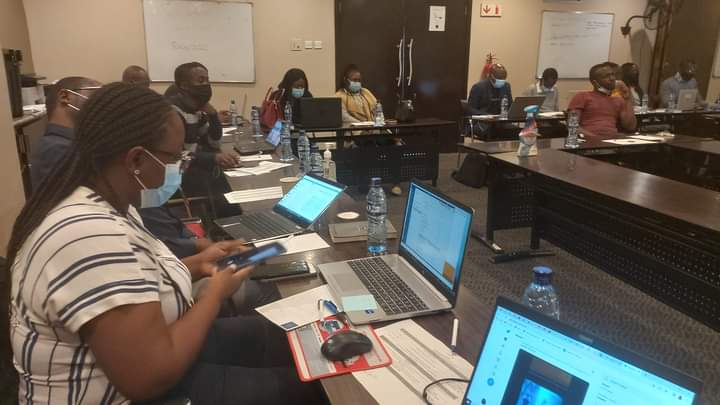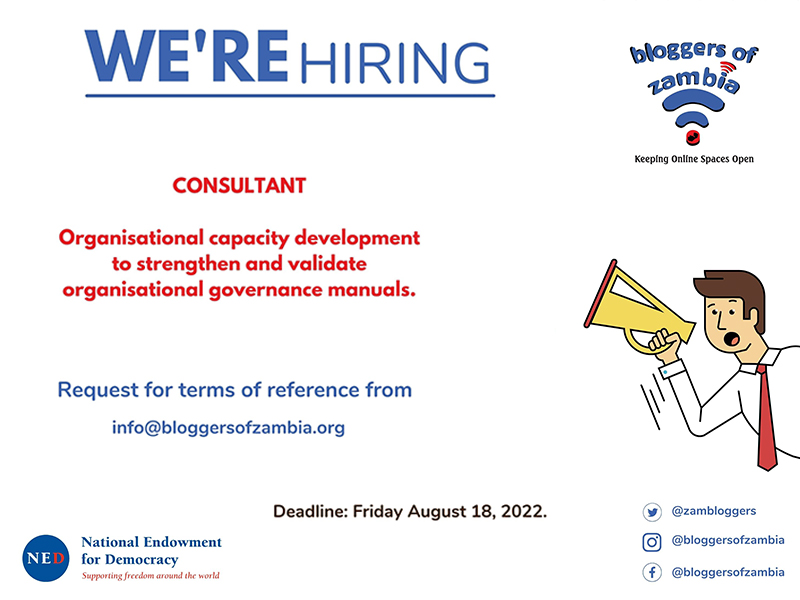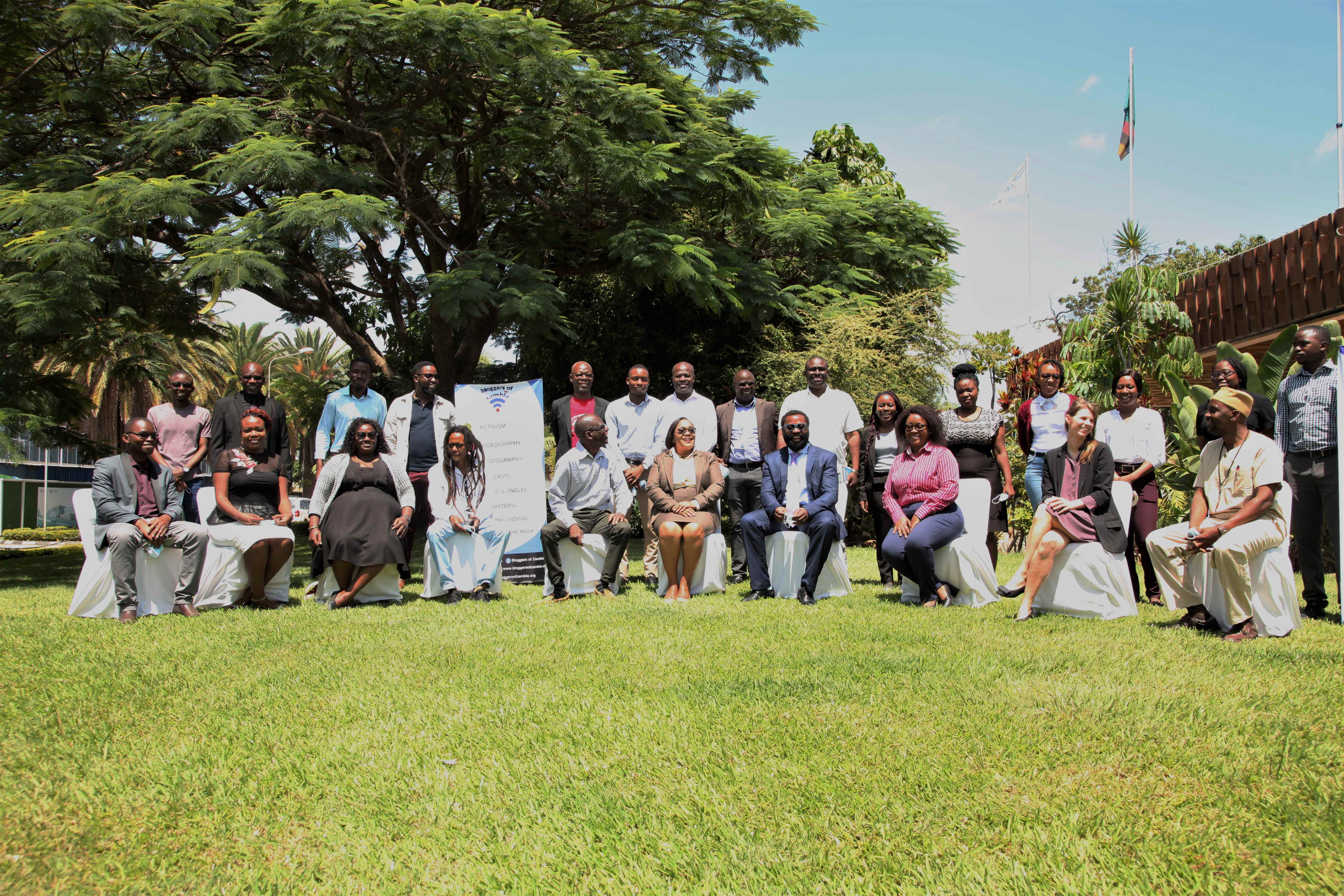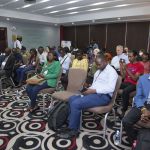
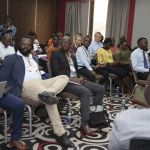
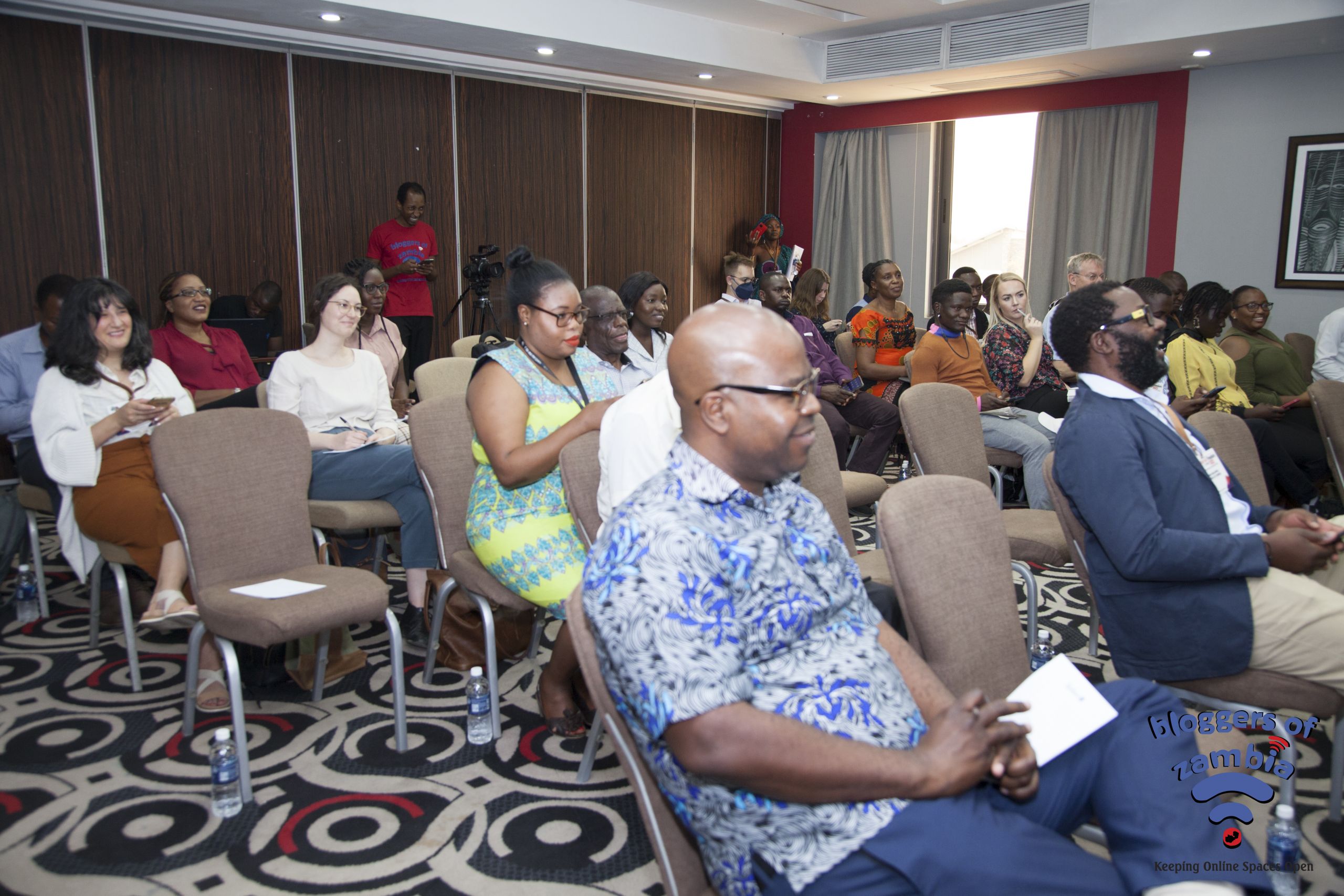
BloggersZM FIFAfrica22 Session: Building Resilient Access to Information Legislation in the Digital Age
We commemorated International Day for Universal Access to Information in style at with a panel of comrades from around the continent taking a journey and sharing experiences with conversations on unlocking and building resilient access to information legislation in the digital age from respective countries and the world.
Richard Mulonga, the Team lead of Bloggers of Zambia welcomed everyone by emphasizing the need and importance in building a resilient access to information legislation in the digital age for Zambia. He further gave a brief description on Zambia’s journey and challenge in enacting ATI (Access to Information) to stress on need to follow multi-stakeholder approach in the process.
In attendance were diverse partners from within Zambia, Africa and across the world, including representatives from International Center for Not-for-Profit Law (ICNL), Centre for International Media Assistance (CIMA), MISA Zimbabwe, as well as some board members.
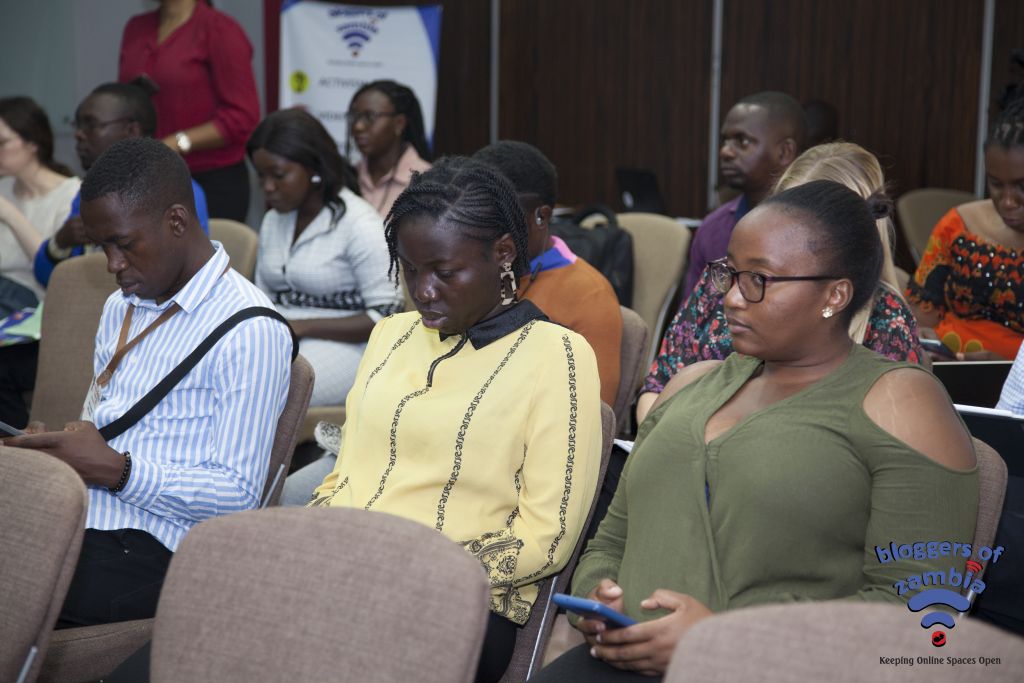
Audience attending the session coordinated by Bloggers of Zambia and organized by CIPESA
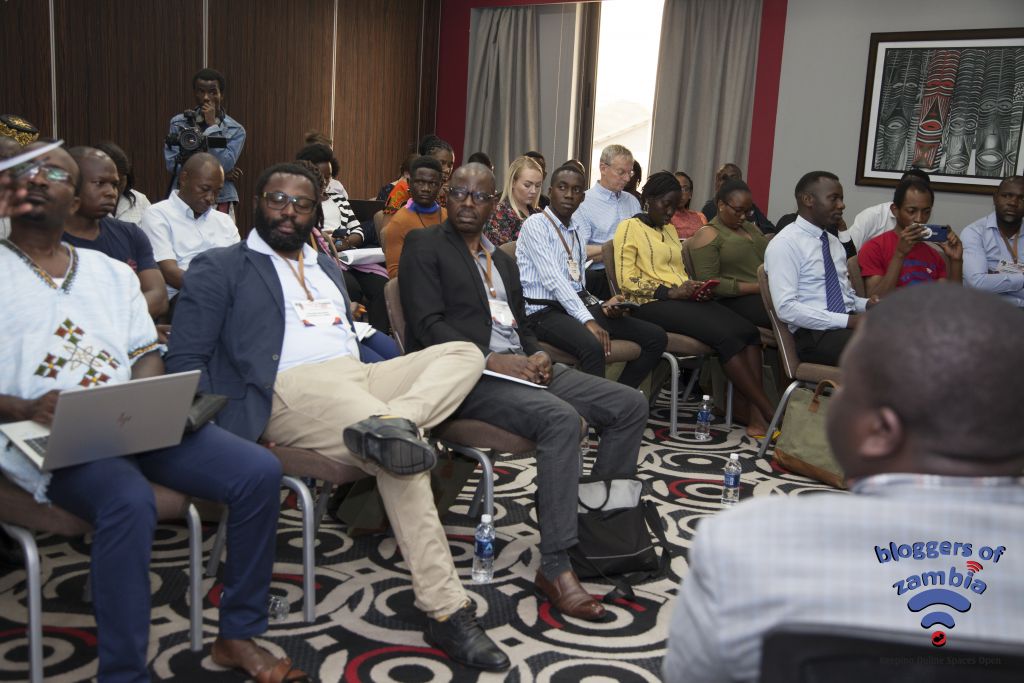
Audience during the session
The audience boosted diverse experts from Civil Society Organizations leadership, Content Creator movements, Media houses, student and citizen journalists along with bloggers and influencers.
The panel moderator Daniel Sikazwe (Bloggers of Zambia Chairperson)introduced the guests to the discussion. To discuss building resilient access to information legislation in the digital age, the panel had representation from Zimbabwe’s Nigel Nyamutumbu– Head Secretariat, Media Alliance Zimbabwe, Uganda’s Asimwe John Ishabairu – CIPESA Engagement Officer, Nigeria’s Onyekachi Chukwu– Africa Freedom of Information Centre, Engagement coordinator and finally Zambia’s Nervious Siantombo – Programs Manager, PANOS Institution Southern Africa. Here are some key statements from the conversation;
Nigel Nyamutumbu says that an Access to Information (ATI) Bill is important because it is a right that every individual should have access to information.
He further went on to show that ATI is an enabler from a media point of view, as their work is more practical when they have access to information.
Asimwe Ishabairu says that an Access to Information Act is important not only for Civil society organizations, the media and the general public but for government also.
Onyekachi Chukwu adds that 26 countries have adopted the Access to Information Act. In Nigeria, it has been implemented by CSOs in many ways and Nigerian CSOs are able to take The Nigerian government to court if the government withholds information from the public. Lack of an Access to Information Act has made people pay fines without knowing what they are being charged for.
Nervious Siatwambo said the Bill needed now more than ever. He added that the ATI drafted in 2002 was a stronger version of the one we have now. Panos had consulted government on the currrent ATI being drafted but they didn’t like the direction government was taking and decided to drop out
The audience during plenary discussed how the Access to Information Act process in Zambia can be sped up. Gabriel from Nigeria shred that we need to use social media to break down the Access to Information Act to everyone (class, age etc.) so that it can get more influence and attention.
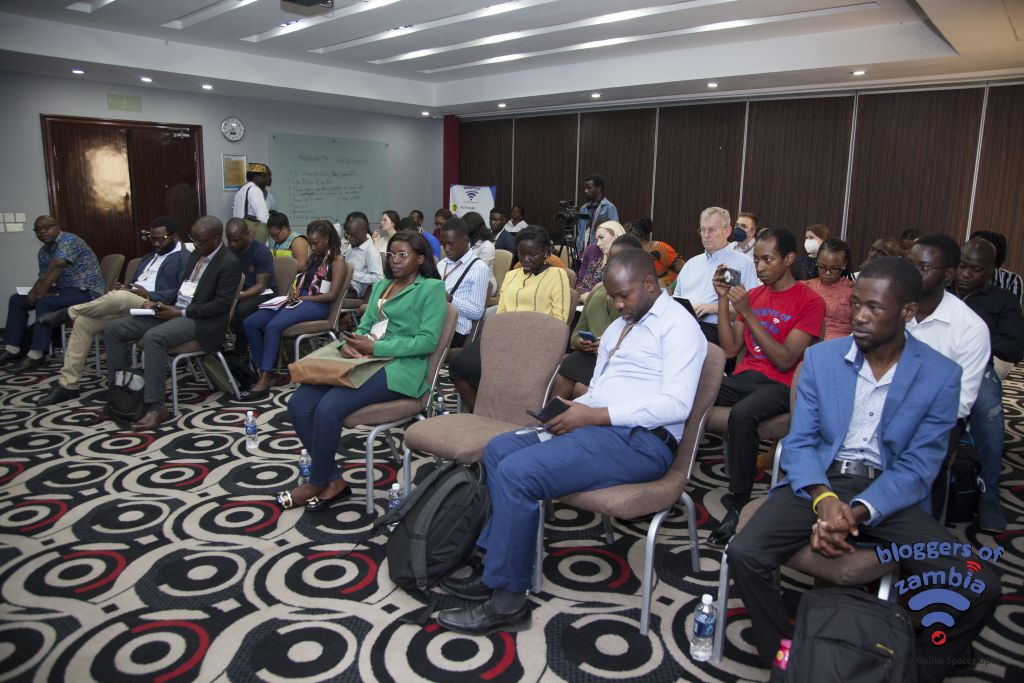
Building Resilient Access to Information Legislation Plenary
Manchisi Kamufisa said that after 20 years of advocating, we need to use online spaces, to get international backing. He added that the reason it hasn’t been pushed widely for is due to the online habits of citizens, which may not be relevant to the ATI Bill including jobs, pornography and music.

Building Resilient Access to Information Legislation Plenary
Other Additions were made like the fact that we don’t advertise the advantages of the Access to Information Act.
#OpenSpaceZM
#InternetFreedomAfrica #FIFAfrica22
